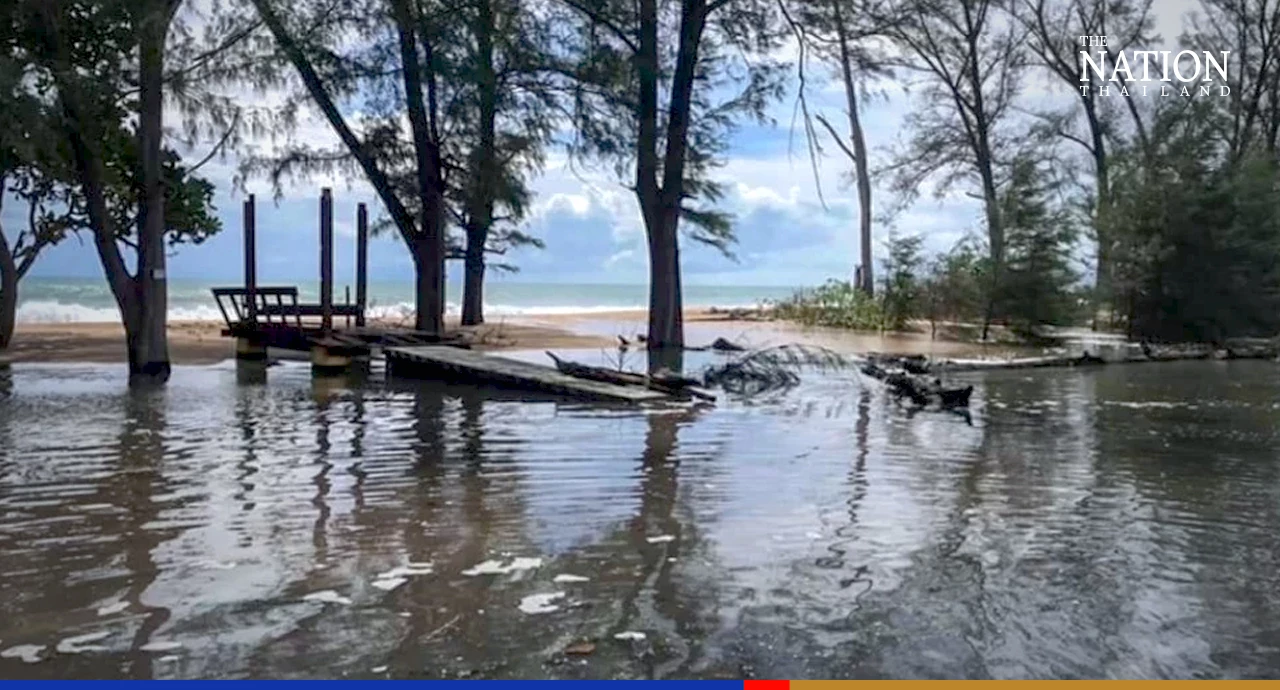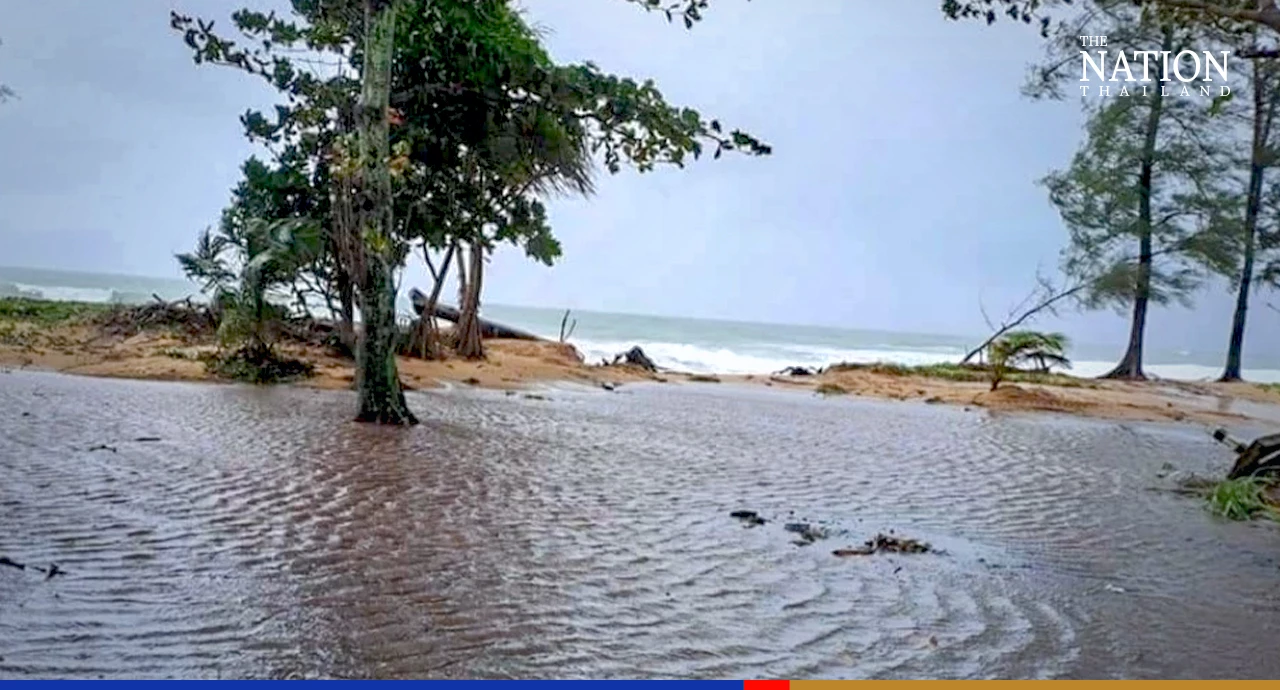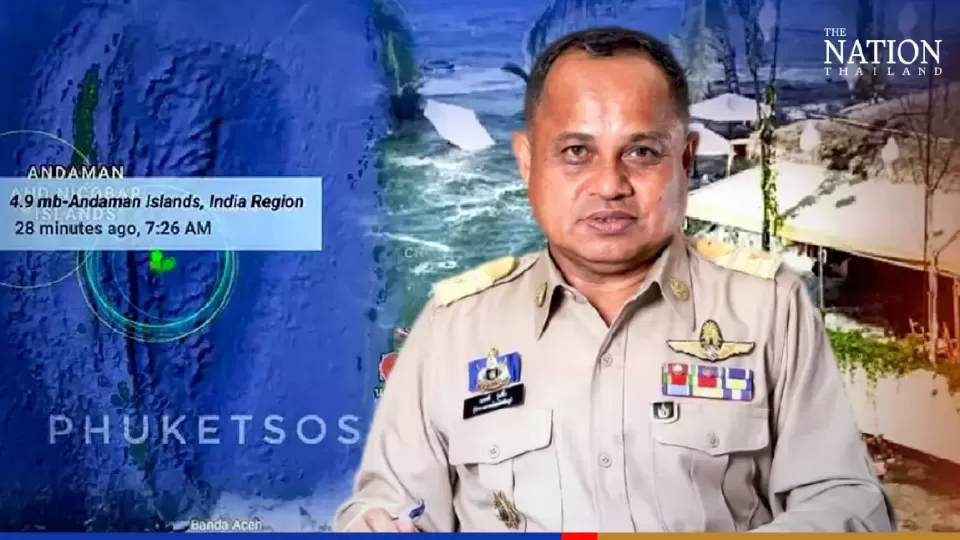July 8, 2022
BANGKOK – Phuket Governor Narong Woonciew on Wednesday ordered the deputy governor to cooperate with the local disaster prevention and mitigation office and related organisations to monitor the situation closely and be prepared.
They have also been instructed to visit the area immediately if a disaster occurs.
The Andaman Sea saw as many as 32 earthquakes from Monday to Wednesday, 500 kilometres northwest of Phang-nga.
A resulting rise in seawater flooded several areas in Phuket, leading to public anxiety that a tsunami could hit the province.
Narong said the situation was not worrying at the moment, but he was nevertheless prepared in case “something” occurred.

The governor said Phuket residents, having experienced the tsunami in 2004, are “not careless”.
He reiterated that the province has prepared equipment while staff are ready to help the public.
Meanwhile, Phuket Disaster Prevention and Mitigation chief Udomporn Kan said the southwest monsoon is intense, with the amount of rainfall exceeding normal standards. To add to this, seawater levels were high since Sunday.
But Udomporn said the high sea level is not related to a tsunami as these occur only from an earthquake of 7.0 magnitude or higher.
As for concern over out-of-position tsunami buoys, he said the warning system is still effective because it also uses up-to-date data from foreign countries. Besides, the National Disaster Warning Centre has inspected several earthquake zones and Thailand has not been affected so far.
The centre is always monitoring the situation, he said. It also tested alarms in 19 spots around Phuket on Wednesday.
In an actual emergency, an alarm will be broadcast in five languages – Thai, English, Japanese, Chinese, and Russian.
On Wednesday, Phang-nga also announced it had made preparations for a tsunami after several earthquakes in the Andaman Sea.
Read More: https://www.nationthailand.com/in-focus/40017431
The Disaster Prevention and Mitigation Department (DDPM) meanwhile said that if there is an earthquake of 7.0 magnitude or higher, a warning will be immediately sent to 130 alarm towers in Ranong, Phang-nga, Krabi, Trang, Satun and Phuket.
Staff are monitoring the situation 24 hours a day via tsunami detection buoys, the DDPM said. If a tsunami approaches, the buoys will send out an alarm to the National Disaster Warning Centre and the US National Oceanic and Atmospheric Administration (NOOA).
If the Thai buoys are not in place at the time, buoys from other countries will send a warning to the NOOA, so Thailand will definitely be alerted quickly, the department assured the public.
It also confirmed that the alarm system was “working properly” and it would inform the public swiftly if any evacuation was needed.
The department added that it had prepared enough staff and equipment to deal with a disaster in the six high-risk provinces and had undertaken tsunami evacuation drills since May.



